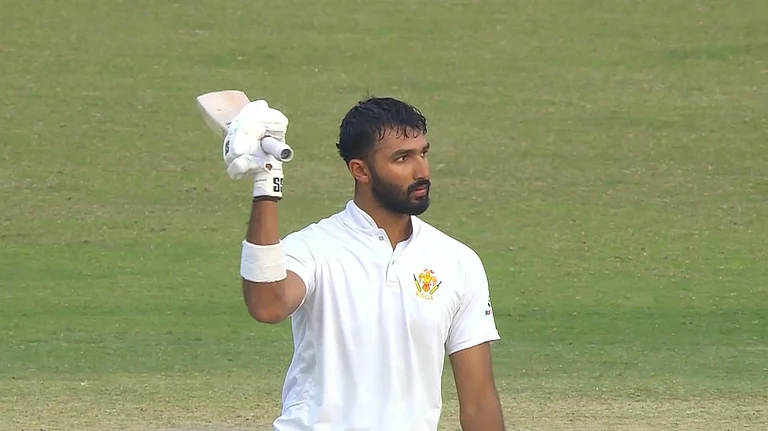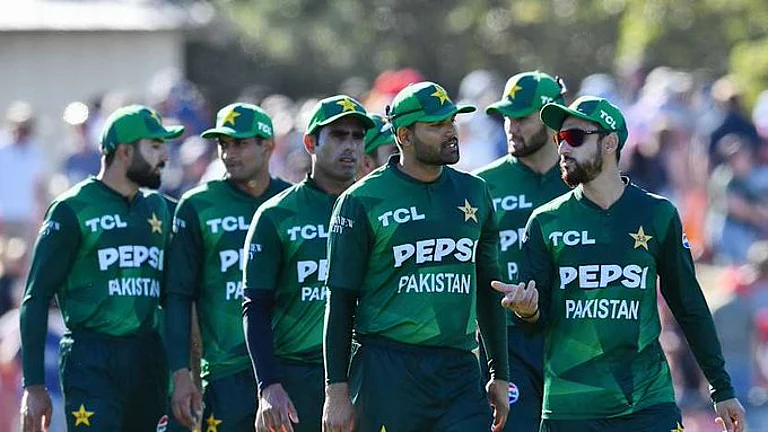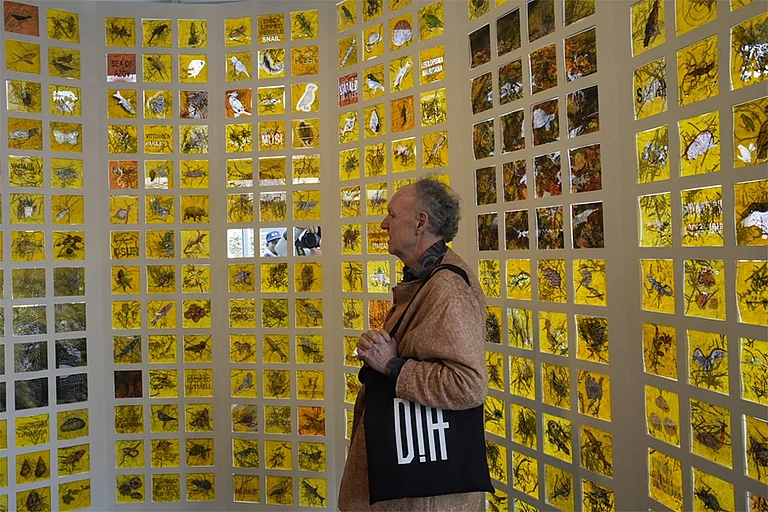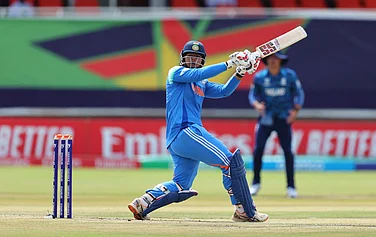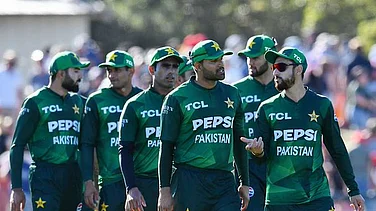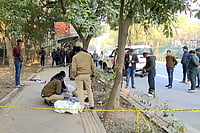THE Imran Khan-Ian Botham libel case has finally exposed the worst kept secret in cricket—England and Pakistan just cannot stand each other. Nobody who was at Lord's that Monday tea time, just as George Carman was summing up for Imran in the libel case a few miles away in the Royal Courts of Justice in the Strand, could have missed the deep distrust with which these two countries view each other. Minutes after Pakistan had comprehensively beaten England, a small Pakistani contingent gathered in front of the pavilion shouting: 'Botham is a liar'.
Lord's, meanwhile, bolted all the doors and windows of the pavilion and even barricaded the approaches to it. It turned out Lord's was reacting to a water-leak caused by Pakistani cricketers leaving on the water taps in their dressing room, which threatened to bring the pavilion crashing down on all and sundry. But to the unwary, it seemed as if the self-appointed guardians of cricket were just that bit apprehensive of the Pakistani supporters.
It would be tempting to laugh off the moment at Lord's as no more than a little amusing cameo but it showed how when it comes to England playing Pakistan in cricket, the fairest and most moral of team games, everything turns into a deadly duel between the two countries, reflecting deep-seated antagonisms on both sides. The court case certainly proved that. The case had three phases. In the first, Botham—who alleged that Imran had called him a cheat, a racist and a lower-class fellow—was put on the defensive when Carman brought up the old stories of drugs and women. Botham admitted under oath that he had lied. Round one to Imran.
But then Botham seemed to have equalised when Imran, halfway through his defence, withdrew his attempt to prove Botham had cheated during cricket matches—videos had been shown in this regard—and apologised. Round two to Botham. After that it seemed Botham would win. But the jury of 12 (five women and only one coloured man) evidently found Imran, whose evidence in the box was more impressive than Botham's, the more credible. So confident had Botham been of victory that he had turned down a peace offer, with a suitably rich businessman playing the broker. As it turns out, he and co-accuser Allan Lamb are left holding a bill of £400,000 (over Rs 2 crore).
To say Botham was stunned by the judgment is to minimise the impact on him. The decision surprised everyone, including the London legal profession, most of whom were predicting a win for Botham. Imran and his supporters, tired of their team being villainised, immediately saw it as a victory for Pakistan cricket.
It is, of course, supremely ironical that Imran should be the standard-bearer for Pakistan. If any man could be said to be a shining example of England's civilising sports mission, it's Imran. Back in 1971 when he came with the touring Pakistani team, he was a spotty 17-year-old whose English was far from perfect and whose cricket little noticed. In less than a decade, Imran was not only a lion on the cricket field but in the best drawing rooms and bedrooms of London, a transformation wrought by Oxford and the cricket finishing schools of Worcester and Sussex.
This Imran was visible during the court case. Dressed in a natty suit he came to court every day, with wife Jemima, daughter of Sir Jimmy Goldsmith, on his arm. Sir Jimmy's wife Lady Annabel was often only a step behind. To reinforce the picture of the man bridging an immense cultural gap, among the witnesses who spoke for Imran were current English captain Michael Atherton, former captain Tony Lewis and '80s all-rounder Derek Pringle, all Cambridge products. Has there ever been a more dramatic representation of light blues coming with dark blues, against a man like Botham who is in the historic traditions of the self-made professional English player, the populist representing the Sun -reading English working-class?
Yet as the demeanour of the crowd at Lord's showed, the Pakistan Imran represented was very different. And as the proceedings in Court 13 revealed, the divisions go far beyond cricket. Cricket and cricketers trooped in and out of the witness box but the whole case was a mirror for some clashes of the ego, with events on the field reinforcing prejudices and national stereotypes.
The Pak-vs-England duel has been going on for a while but it found its present nasty face during 1992. Then, in quick succession, Pakistan won the World Cup defeating England in the final and came to England and won the Test series. Their bowlers, defying all old logic, seemed to have perfected the art of swinging an old ball—it's generally believed a ball swings best when it's new—and swing it so devastatingly that England, often coasting to a big total, would collapse ignominously.
Pakistanis saw the victories in 1992 as final proof that Pakistan had one of the best, if not the best, cricket team in the world and certainly the best pair of opening bowlers in Wasim Akram and Waqar Younis. Yet English cricket, far from accepting defeat with grace, whispered that the Pakistanis had engineered success by getting an old ball to swing through illegal means. It remains a terrible blow to that most sensitive of Pakistani feelings— izzat (honour). In Pakistani eyes, English cricket has been insulting their izzat almost from the first moment the two countries started playing Test cricket against each other.
The fact that the two can view cricketing incidents so differently would have come as a surprise to those Raj stalwarts who, during the days of the empire, favoured that part of the subcontinent. The great champions of the Raj built up a cosy picture of tall, dark fearless men who were always true to their word and honour. The ancestors of Imran and the modern Pakistanis were the men who Kipling immortalised in his writings, while heaping scorn on the ancestors of most modern Indians.
Yet now, the word 'Paki' is itself a term of abuse in England, a rallying cry of white racists. Many among the cricket-watching public secretly echo Botham's remark that Pakistan is a country you send your mother-in-law for an all-expenses-paid holiday. The presence of large numbers of Pakistani settlers, far from helping foster ties, has further divided it. Where the old Raj had struck up a working relationship with the old Muslim elite of the subcontinent, in new multicultural England almost every Pakistani is regarded as an illiterate peasant from the hills near Pakistan-held Kashmir. It's galling for the educated elite, who control Pakistani cricket, to be subjected to such comparisons. And Imran's rise as a man who could outperform Englishmen, both on and off the field, hardly helped in correcting the image of the 'Paki' as an undesirable.
Pakistanis have also not helped their cause by displaying a mixture of aggressive defensiveness and a chippiness which makes them see conspiracy when there may only be a cock-up. This is combined with a fierce desire to prove they are the best in the world. On their last West Indies tour, they readily believed drug charges against their leading cricketers were deliberately instigated to destroy their team. The clash of the titans has given them reason to cheer.







